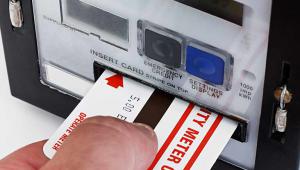27 June 2003
A 'fuel poverty' scheme has misdirected millions of pounds of public money, and its eligibility rules bear no clear relation to applicants' need, a National Audit Office review has found.
The NAO report of the Warm Front scheme, published on June 25, found that 14% of £133.5m paid in grants reached the least energy efficient homes.
It said that up to 70% of recipients may not in fact be 'fuel poor', while in 20% of cases the help given cut fuel bills by just £25 a year.
Public Accounts Committee chair Edward Leigh called the findings 'staggering'. He said the Department for Environment, Food and Rural Affairs 'must ensure that the eligibility criteria are rethought, as vulnerable people are missing out on grants'.
'Such action is also due to taxpayers who must be assured that public money is not being misdirected on such a considerable scale.'
Auditors said the key problem is that Warm Front does not have its own eligibility criteria. Instead, recipients of benefits including income support, disability living allowance and housing benefit are assumed to be suffering fuel poverty.
The NAO said: 'There may be significant numbers of fuel poor who are not eligible for Warm Front because they are not claiming benefit or are not entitled.
'Between 40% and 70% of households eligible for Warm Front may not be fuel poor because they have a reasonable level of income or live in a home that is already energy efficient.'
Defra cannot tell whether it would meet its target of eliminating fuel poverty by 2016, the auditors added.
This is because it does not assess the reduction in fuel poverty achieved by Warm Front, and instead simply assumes that all assisted households have seen an improvement in energy efficiency and that therefore fuel poverty has been reduced.
The NAO said: 'This approach presumes that all households were fuel poor at the start, and that assistance leads to improvements in energy efficiency. In practice, these presumptions may not apply.'
PFjun2003



















